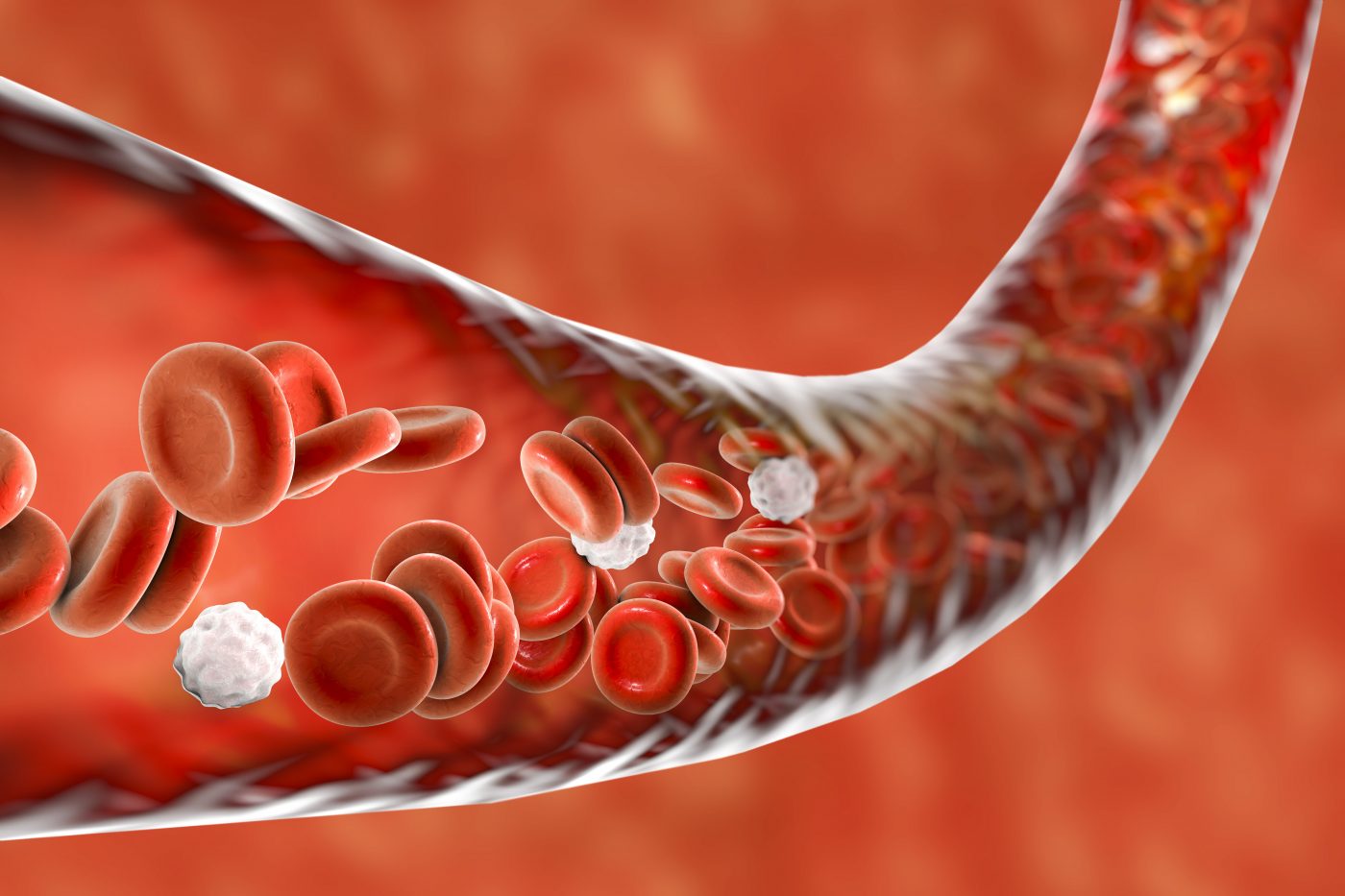Levels of Two Blood Proteins Predict Course of ILD in SSc, Data Suggest
Written by |

High levels of two proteins in the blood, called KL-6 and CCL-18, may work as biomarkers for predicting disease severity and progression of interstitial lung disease (ILD) in systemic sclerosis (SSc) patients, Phase 2 trial data suggest.
The study, “Pneumoproteins KL-6 and CCL-18 Predict Progression of Interstitial Lung Disease in Systemic Sclerosis,” was published in the journal Arthritis & Rheumatology.
ILD is a frequent complication associated with SSc, and is the leading cause of death among these patients. ILD is caused by inflammation and the buildup of scar tissue in the lungs, which affects breathing and hampers the lungs’ ability to transfer oxygen to the bloodstream.
The progression of ILD in SSc varies among patients; while immunosuppression therapies improve lung function in certain patients, in others ILD continues to progress despite early treatment.
Currently, there are no tools to predict which SSc patients will develop ILD and how severely.
In previous studies, blood-based biomarkers — including interleukin (IL)-6, C-reactive protein (CRP), CC chemokine ligand 2 (CCL2), CCL-18, CXCL4, and KL-6 — have been shown to be associated with ILD progression in SSc.
Because CCL-18 and KL-6 are proteins produced when lung tissue is damaged, researchers reasoned that these two proteins could make better ILD-specific biomarkers than proteins associated with whole-body (systemic) inflammation, such as IL-6 or CRP.
In the study, researchers measured the levels of CCL-18 and KL-6 in the blood of patients with active SSc-ILD who had participated in the Scleroderma Lung Study (SLS) II (NCT00883129), conducted between 2009 and 2013.
The SLS II compared the effects of one year of oral cyclophosphamide followed by a year of placebo versus two years of mycophenolate mofetil treatment in 142 SSc-ILD patients (mean age 52.3 years). Cyclophosphamide and mycophenolate mofetil are two therapies used to suppress the immune system.
Among the 142 participants in the SLS II study, the blood levels of KL-6 and CCL-18 at the start (baseline) of the trial and 12 months after were available for 133 and 99 participants, respectively. Researchers also measured the levels of these two proteins in 39 unaffected control participants.
Results showed that blood levels of KL-6 [1752.05 units (u)/ml] and CCl-18 [191.29 nanograms per milliliter (ng/ml)] were significantly higher in SSc patients compared to those of healthy controls —330.70 u/ml and 87.71 ng/ml, respectively. Moreover, KL-6 levels correlated with SSc severity at baseline.
Both immunosuppressive therapies tested in the SLS II study led to reductions of the two proteins in the blood. KL-6 levels declined by an average of 100.60 u/ml of blood; CCL-18 declined an average of 61.24 ng/ml.
Higher levels of both KL-6 and CCL-18 at baseline were also predictors of progression of ILD, as measured by lung function measurements, namely the forced vital capacity (FVC, the amount of air that can be forcibly exhaled from the lungs after taking the deepest breath possible), and the diffusing capacity for carbon monoxide (DLCO, the ability of the lungs to transfer oxygen from the air to blood).
Specifically, in the group of patients treated with mycophenolate mofetil, KL-6 levels greater than 1,549 u/ml were associated with an increased risk of ILD progression. Researchers were unable to determine a threshold for KL-6 in the group treated with cyclophosphamide.
Also, they failed to identify a significant threshold for CCL-18 for predicting ILD progression in either treatment.
Researchers then analyzed data from a group of patients to assess whether baseline KL-6 or CCL-18 levels predicted long-term survival in patients with SSc-ILD. Data after a median follow-up time of four years showed that increased CCL-18 levels at baseline correlated with an increased risk of mortality, including by respiratory failure, in the cyclophosphamide group. No association was found for mycophenolate mofetil, or for KL-6 in either group.
Overall, the “findings strongly suggest that KL-6 and CCL-18 are important peripheral markers of both disease severity and disease progression in patients with SSc-ILD,” the researchers said.
“Measurement of these two pneumoproteins early in the course of SSc-ILD may help to identify those patients with a more aggressive SSc-ILD phenotype in both clinical practice and in research,” the team concluded.
Researchers highlighted that additional studies are needed to dissect the mechanism by which KL-6 and CCL-18 contribute to SSc-ILD. Such studies “may also reveal new therapeutic targets for intervention in SSc-ILD since currently available treatment options for this often-fatal condition are still limited,” they said.





